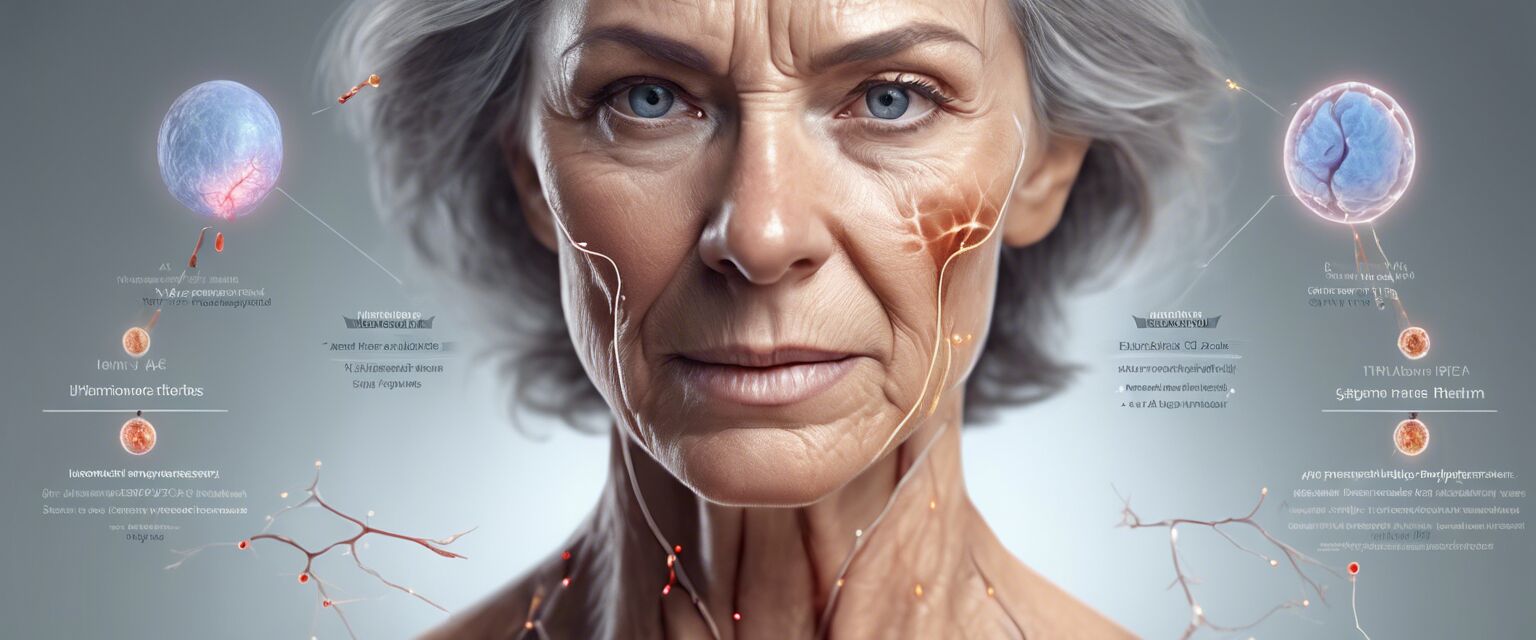
Post-Menopause Health Management
Menopause is a significant milestone in a woman's life, marking the end of her reproductive years. While it can bring a sense of relief and freedom, it also presents new health challenges. As hormone levels decrease, women may experience a range of symptoms that can impact their overall wellbeing.
Key Takeaways
- Post-menopause health management involves a combination of lifestyle changes and supplements to maintain overall wellbeing.
- Focus on bone health, fitness, and weight management to reduce the risk of chronic diseases.
- Prioritize mental wellbeing and skincare to maintain a healthy and youthful appearance.
- Consult with a healthcare professional to create a personalized health plan.
Understanding Post-Menopause Health Challenges
During menopause, the body undergoes significant changes that can lead to a range of health issues, including:
| Health Challenge | Description |
|---|---|
| Bone Loss | Decreased estrogen levels can lead to bone loss, increasing the risk of osteoporosis and fractures. |
| Weight Gain | Metabolic changes can cause weight gain, particularly around the midsection. |
| Mood Changes | Fluctuating hormone levels can lead to mood swings, anxiety, and depression. |
| Sleep Disturbances | Hormonal changes can disrupt sleep patterns, leading to insomnia and fatigue. |
Lifestyle Changes for Post-Menopause Health Management
To maintain optimal health during this stage, it's essential to make conscious lifestyle changes, including:
- Regular Exercise: Engage in weight-bearing exercises to maintain bone density and manage weight.
- Healthy Diet: Focus on calcium-rich foods, whole grains, and fruits to support overall health.
- Good Sleep Hygiene: Establish a consistent sleep schedule, avoid caffeine, and create a relaxing bedtime routine.
- Stress Management: Practice stress-reducing techniques like meditation, yoga, or deep breathing exercises.

Supplements for Post-Menopause Health Management
In addition to lifestyle changes, certain supplements can help alleviate symptoms and support overall health. Consider:
| Supplement | Benefits |
|---|---|
| Calcium | Supports bone health and density. |
| Vitamin D | Essential for calcium absorption and bone health. |
| Omega-3 Fatty Acids | Supports heart health and may alleviate mood changes. |
| Probiotics | Supports gut health and immune system function. |
Skincare and Beauty Tips for Post-Menopause
During menopause, skin changes can occur due to hormonal fluctuations. To maintain healthy and youthful-looking skin:
- Moisturize: Use gentle, hydrating products to combat dryness and wrinkles.
- Protect Your Skin: Use sunscreen and protective clothing to prevent sun damage.
- Exfoliate: Gently exfoliate to remove dead skin cells and promote cell turnover.

Mental Wellbeing and Self-Care
Menopause can be a challenging time emotionally. Prioritize mental wellbeing by:
- Practicing Mindfulness: Engage in activities that promote relaxation and mindfulness.
- Connecting with Others: Build strong relationships and social connections to combat loneliness.
- Setting Boundaries: Prioritize self-care and learn to say "no" to maintain emotional balance.
Benefits of Post-Menopause Health Management
- Reduced risk of chronic diseases
- Improved bone health
- Enhanced mental wellbeing
- Better sleep quality
Challenges of Post-Menopause Health Management
- Requires significant lifestyle changes
- May require ongoing supplement use
- Can be emotionally challenging
- May require professional guidance

Conclusion
Post-menopause health management requires a proactive approach to maintain overall wellbeing. By making conscious lifestyle changes and supplementing with essential nutrients, women can reduce the risk of chronic diseases and maintain a healthy, vibrant life. Consult with a healthcare professional to create a personalized health plan tailored to your unique needs.








